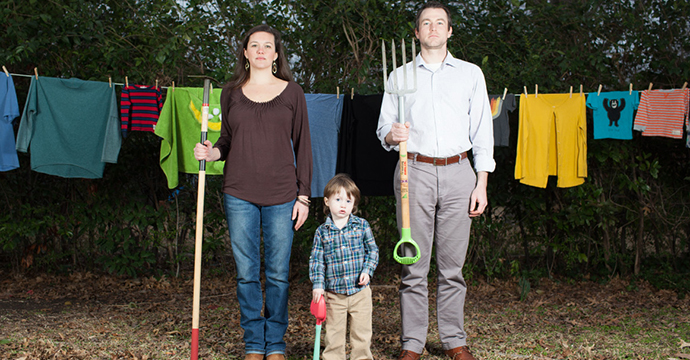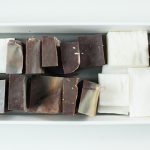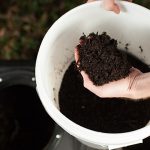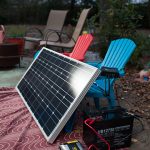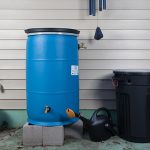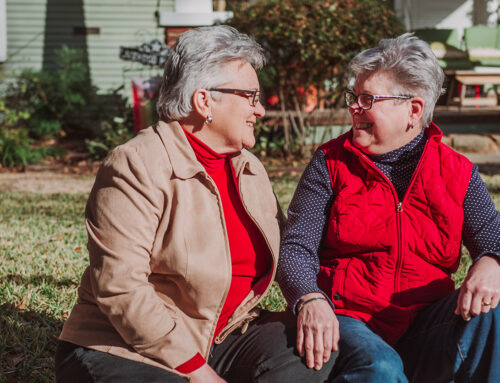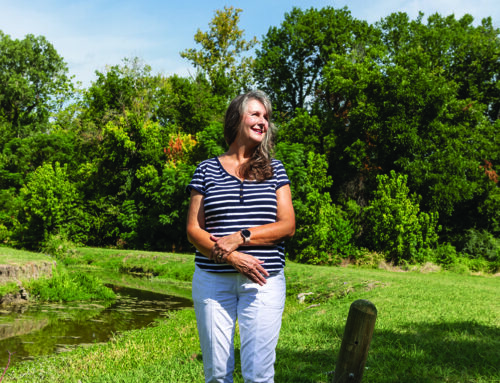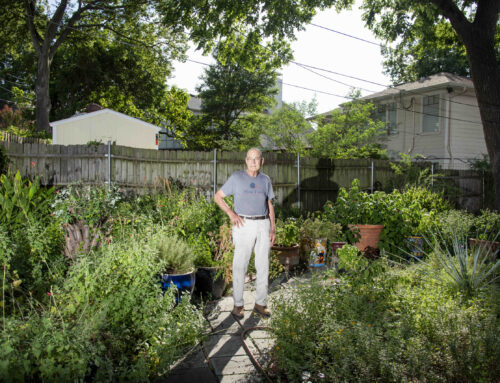“I went into the woods because I wished to live deliberately…”
The year is 1845, and Henry David Thoreau despairs of a society consumed by consuming. He laments that people are going into debt to buy things they don’t need: “Most of the luxuries … are hindrances.” Sound all too familiar?
Few of us, practically speaking, can retreat to a cabin in the woods to “simplify, simplify, simplify.” But neighbor Aaron White discovered that life in the big city can indeed be lived more sustainably and deliberately.
The Old Lake Highlands neighbor is a minister at First Unitarian Church. Profoundly influenced by his Thoreau readings, Aaron decided to use a recent five-month sabbatical to explore urban homesteading. Recognizing the unique opportunity in having five free months and inspired by “Walden,” he and his wife, Kate Wiseheart, launched their very own Walden at White Rock project. Their aim, Aaron says, was to “prove to ourselves that we could live more deliberately, simply and sustainably in the heart of this city. We could make a difference in the community we care about without necessarily retreating to a cabin in the woods somewhere far away.”
From August through December 2014, the couple, along with 2-year-old son Hank, established new rules and routines with two basic goals: to reduce consumption of electricity, natural gas and water by 25 percent, and to generally be “more maker than consumer.” First came the thermostat: 78 degrees in the summer, 65 in the winter. Instead of using an energy-guzzling dryer, they hung clothes inside and outside to dry.
The family tended two raised organic garden beds; devised a rainwater catchment system; built a solar generator that powered one room; composted food and yard waste as well as worm castings; pickled vegetables from the gardens; walked, used public transit, or biked when possible; made candles; made almost all of their personal care products; made all of their home cleaning products; and made all of their holiday gifts for family and friends.
“I encountered individuals and communities all over Dallas and Texas that inspired me and helped me do the work,” White recalls. He attended local classes in farmsteading, vermicomposting (worms) and urban chicken ranching, plus an intensive homesteading class at Homestead Heritage in Waco, where he had access to instruction in gardening, poultry, fence building, beekeeping and soap making.
Daily life in the White household changed. “The rhythm was different,” Aaron muses. “We had our homesteading tasks to take care of.” Each day began with hanging laundry on the line outside, then tending the garden, turning compost and checking the worms. Instead of making a run to a big box store for soap, shampoo, sunscreen and lip balm, Aaron and Kate headed to the kitchen to whip up batches of needed products. Laundry and dish detergent, spray cleaners — same thing. Off to the kitchen to cook and mix and create. Difficult? Not really. Aaron and Kate had spent the year previous experimenting with recipes they found mostly online. “Once we did them a few times,” Aaron says, “it was just a fun and regular part of our lives.”
Though they were surprised how smoothly things went, not all was idyllic. Aaron’s first attempt at making candles ended up being a waxy mess on his clothes and the kitchen floor. And building a solar generator carried a steep learning curve as he decoded the language of “amps, volts and watts.”
Both Aaron and Kate, though, say the mishaps were more internal as they adjusted to simpler living. Kate recalls, “The hardest part for me was adopting a new way of approaching problems. More often than not, my first response to almost any problem is to buy something. A big part of this intentional living experiment was a shift from consumption to creation, so I really had to check myself.”
And 2-year-old Hank was a trouper, happily harvesting vegetables in the garden, playing with worms, and riding the DART train around town. He even, Kate remembers, displayed extraordinary calm on their “No Screens” days, gamely forgoing his beloved Curious George show. “We figured we would be in for a huge toddler meltdown, but he had absolutely no problem with it,” Kate say. “In fact, I was the one who broke — I hid in the bathroom to send a text message. It totally wasn’t worth it.”
The family experienced “pure joy” in small moments: laughing as they traded homemade candles for a neighbor’s chicken manure; tasting their homemade pickles and rejoicing as their handmade solar generator finally worked: “We trapped the sun in a box and harnessed its power to our will!”
Now that Aaron is back in the pulpit, little has changed at home except a busier pace and more car use. “From the very beginning, our goal was to engage in practices we would continue after sabbatical.” His advice for those who wish to “live deliberately”? “Start small, and start now,” he says. Help is everywhere. “There are kind and committed people all over this city” willing to teach and mentor. “I found myself feeling more at home in a place I’ve lived almost all my life, and I love who I’m meeting and what I’m learning here.”

